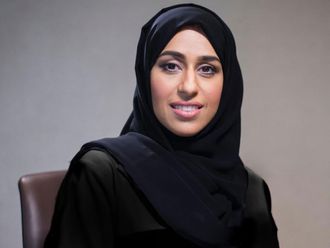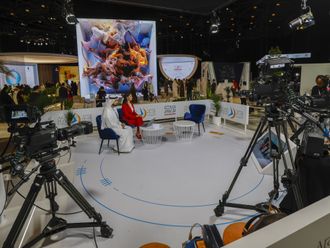Abu Dhabi: A call was made to speed up the formation of a permanent and international peacekeeping force at the 16th Emirates Centre for Strategic Studies and Research (ECSSR) annual conference.
Apart from proposing that the five permanent members of the UN Security Council should agree not to use their veto power to block action in response to genocide and mass atrocities, which would otherwise pass by a majority, Don Kraus, chief executive officer at Citizens for Global Solutions, called for the formation of a United Nations Emergency Peace Service (UNEPS) during his speech yesterday.
Kraus vowed that the peacekeeping service would help protect citizens from bloodshed, maintain peace, conflict resolution, environmental crisis response and emergency medical relief.
"A [peacekeeping service] would be available almost immediately to respond to a crisis, and help safeguard citizens from any possible bloodshed," Kraus explained.
First-in, first-out unit
"It's one step towards effective genocide prevention, and is designed primarily as a first-in, first-out unit that could fill the gap between the Security Council's authorisation of a peace operation and the actual deployment of a conventional peacekeeping mission."
While speaking to Gulf News on the sidelines of the conference yesterday, Kraus explained that that there was currently a long delay on the part of the Security Council regarding a peacekeeping mission to a country, which given the current situation "is not feasible anymore."
Kraus also said it was in the interests of the United States, both financially and diplomatically, to support a permanent integrated mission within the UN.
"The establishment of this force could fundamentally change the way in which the international community responds to genocide and help the United States meet its dual goals of averting genocide and preventing [the] loss of lives during dangerous environments," he added.
The proposed mission would include the recruitment, training, and employment of 15,000 to 18,000 individuals, including civilian police, military personnel, judicial experts, relief professionals and others with a diverse range of skills.
When asked how a such a peacekeeping force could help safeguard the Arab world given the current unrest among civilians, Kraus explained that the situation in Libya was way past the peacekeeping process.
When asked about his opinion on the current situation across the Arab world, Kraus was optimistic.
"The rise of the internet, Facebook, Twitter and the fact that so many young people across the Arab world have international exposure, has helped increase expectations amongst youth."












